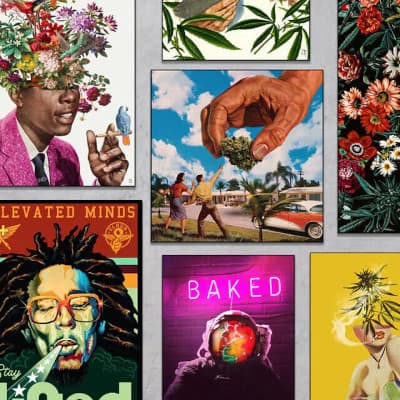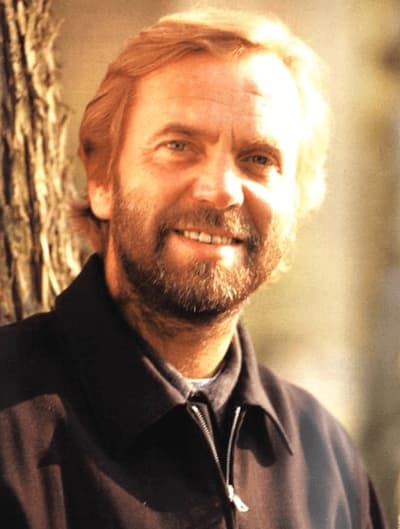BackA lot of movement despite adverse circumstances - cannabis growers in the 90s
11.08.2023

Although cannabis has been known to mankind for thousands of years, it was mainly the recent decades that brought about a different social approach to the plant. After cannabis had enjoyed increasing popularity since the hippie movement in the 1960s and 1970s, the political and social framework has also increasingly changed since the 1990s. This article reviews the most significant players and the evolution of the major seed banks and strains, without which the diversity of today's cannabis supply would be unthinkable.
The Climate is Changing
Movies like Reefers Madness are entertaining in showing how uptight cannabis has been for a long time. While weed was demonized for most of the 20th century, a sudden shift in thinking, so to speak, took place starting in the 1990s. The reasons for this are many and complex, but among the most important are, on the one hand, the medical use of cannabis, the first considerations regarding legalization, and the emergence of an industry and with it the recognition of a great economic potential.
Increasing scientific consideration of the subject helped to draw a realistic picture of cannabis use and its classification, for example, in comparison with the use of other drugs such as alcohol or tobacco. In addition, such scientific research has made it clear how many people are already using cannabis anyway.
Medical use and decriminalization
Various clinical studies have investigated the medical potential of cannabis, and prescription use was introduced in California, for example, as early as the mid-1990s. Nevertheless, the pressure to prosecute recreational users was still enormous. Other countries were also considering medical legalization or even legalization for recreational use. In Canada, Spain and Australia, a new approach to cannabis and other drugs was being discussed. However, this has not yet led to large-scale legalization; only reforms have been sought. In Holland, in particular, cannabis was decriminalized as early as the 1970s. The possession of small amounts was no longer prosecuted and the establishment of coffee shops where cannabis could be bought and consumed was tolerated. However, cultivation of larger quantities of cannabis remained illegal, leading to a procurement paradox for coffee shops and the so-called backdoor issue: cannabis could be sold legally in the front. How it got into the coffee shop or where the weed and hashish was sourced from was ignored. Accordingly, a productive black market developed, which supplied the coffeeshops and still does today - with all the disadvantages, such as violent, organized crime, which actually does not fit the scene of cannabis lovers at all.

USA strains in Holland - a perfect breeding ground
In Spain, too, there has been a more liberal approach to cannabis since the 1990s. Smaller quantities for personal use were usually no longer prosecuted and cultivation for personal use as well as consumption in private rooms was tolerated. The last decade has also seen the emergence of cannabis social clubs, associations in which members work together to grow plants for personal use.
Through this movement, coming into a field illegalized during a long time, new opportunities arose. For the production of medicinal cannabis, some growers were able to work in better conditions than before. This initially led to some milestones in cannabis breeding, especially in North America. Throughout the 90's, such new raw cultivars were smuggled from North America to Holland, because in the USA the pressure of prosecution for recreational use was still very high. Thus, a USA - Amsterdam connection of a special kind developed. American growers and cannabis enthusiasts relocated to Amsterdam, finding the perfect infrastructure to further develop their strains. Probably the most prominent example of this is Dave Watson aka Sam the Skunkman. Watson was arrested for cannabis cultivation in California in the 80s. A short time later, he left for Holland - allegedly with a whole suitcase full of smuggled seeds. Among other things, he had Skunk #1 in his luggage, which laid the foundation for many crosses of the 90s and won the first Cannabis Cup in 1988. In the following years, the Cup was won by many strains that today enjoy cult status. These include Northern Lights, Early Pearl, Haze, Jack Herer, White Widow, Peace Maker and Super Silver Haze.
Amsterdam - the breeders' place of desire
Due to the already then legally special situation in the Netherlands, some top-class seed banks emerged there. Ambitious cannabis seed growers from all over the world flocked to Amsterdam, quickly turning the city into a fertile breeding ground for cannabis innovation. This development was further fueled by the knowledge that existed in Holland about growing plants under artificial light. Some of the most famous brands that emerged during this period include Sensi Seeds, Dutch Passion, Green House Seeds, Serious Seeds and Positronics. All of these seed banks have actually managed to survive to this day. The exception to this is Positronics, which was revived in Spain in cooperation with the original founder Wernand Bruining, after suffering a sad decline and going bankrupt in Amsterdam many years earlier. In addition, however, there were many others that did important work at the time but later stopped. Besides Cultivator's Choice, Free City and The Seed Bank of Holland should be mentioned. The latter was founded by Nevil Shoenmakers, who created some of the most outstanding Haze strains. The Australian had also brought various genetics from his travels to Amsterdam and crossed them with high-quality sativas from the Caribbean region. After arriving in Amsterdam, he lived and worked with fellow friends in what was known as Cannabis Castle, a mansion that housed a sophisticated cannabis breeding laboratory. Nevil was part of the Super Sativa Seeds Club before founding the very Seed Bank of Holland that was later bought by Sensi Seeds.
Sensi Seeds was founded back in 1985 by Ben Dronkers. The following year, the seed bank of the same brand was opened and Sensi Seeds was renamed Sensi Seed Bank. The company is known on the one hand for commitment and funding of research around cannabis topics, and on the other hand for the outstanding strains the company has produced. These include the legendary Northern Lights, Jack Herer, Super Skunk, Big Bud and Silver Haze. But beyond that, there are many other strains for which Sensi Seeds still enjoys the reputation of being one of the most capable breeders around.
While Sensi Seeds is mostly celebrated for its dedication and iconic strains, Dutch Passion, also a Dutch seed bank, has many technical achievements to its credit. For example, they were the first to produce feminized seeds and were also instrumental in the creation of autoflowering strains later in the 2000s. Dutch Passion has produced popular strains such as Blueberry and Orange Bud.
Arjan Roskam and Scott Blakey are the founders of Green House Seeds, which is still very popular today. Blakey created unique and multiple award-winning strains such as White Widow or Super Silver Haze.
In addition to his dedication and restless research in cannabis genetics, Roskam is considered one of the pioneers of cannabis tourism. It was this business acumen that ultimately contributed to irreconcilable differences between Roskam and Blakey, which ultimately led to Blakey's exit. Blakey subsequently founded a new company, Mr. Nice Seedbank, with stoner celebrity and namesake Howard Marks (aka Mr. Nice), at times one of the world's top hash smugglers, who passed away in 2016 at the age of 70.
Roskam, on the other hand, was instrumental in shaping the concept of the Green House Coffee Shop, which attracted tourists and locals alike. Henk de Vries, the founder of the legendary Bulldog Coffee Shop, which quickly developed into a successful chain, should also be mentioned at this point. Of course, there are also numerous other personalities who played an important role in this very significant decade for cannabis growers. These include Simon Smit, who first worked for Sensi Seeds, helped found Cerebral Seeds, and eventually started his own company, Serious Seeds. They are all proof that a very special mix of individuals, visions and skills came together in Amsterdam in the 1990s, resulting in an enormously productive environment.
Ben Dronkers 1996, founder of Sensi Seeds
Foundation for future generations
With the confusing market situation today, it is easy to forget that many of the foundations were laid in the 90s by a small, sworn community under very difficult conditions, including temporary jail terms, discrimination and stigmatization. The varieties created then are still able to inspire and impress today, some thirty years later. Nor will these foundations cease to be relevant for future research and generations of breeders. Nor will they cease to be relevant for growers who still grow, consume and appreciate these varieties today.

